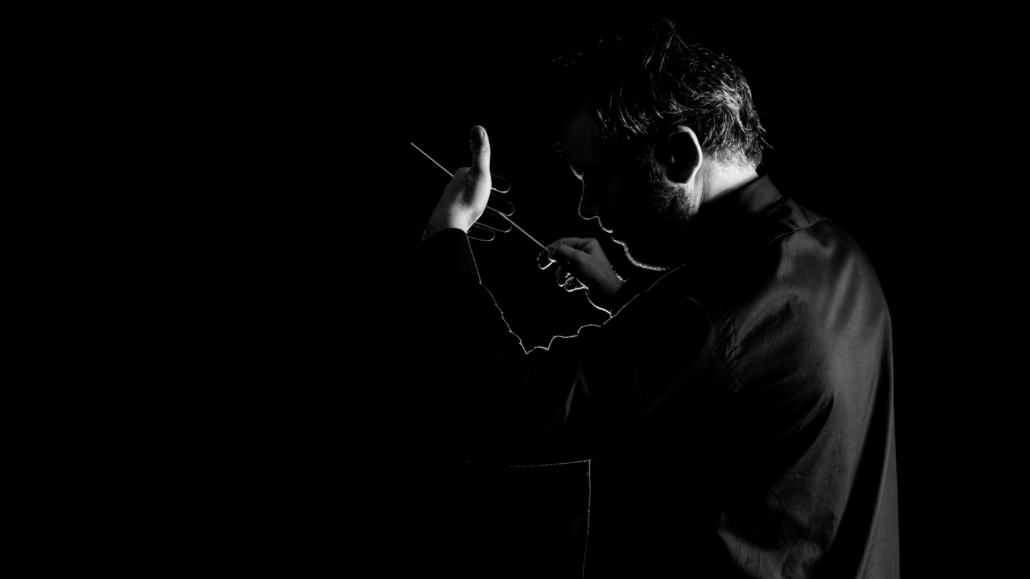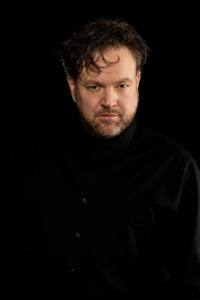APRIL 28, 2024
BRAHMS, BRITTEN, AND BROWN
You have not yet heard Stacey Brown’s When death takes something from you give it back, and neither have we: the piece is a commission from the Victoria Symphony, and will be premiered in April by the orchestra and mezzo-soprano Mireille Lebel. But a large body of commentary has already accumulated around the text that the Newfoundland-based, Kamloops-born Brown has chosen to set, excerpted from the Danish poet Naja Marie Aidt’s When Death Takes Something from You Give It Back: Carl’s Book.
“Aidt’s memoir is like broken glass, the shattered pieces singular in their form but each glistening, ready to cut,” said Nathan Scott McNamara, writing in the Los Angeles Review of Books. Kirkus Reviews considers Aidt’s book “a stirring, inventive masterpiece of heartbreak.” And the author herself, speaking to World Literature Today’s Kathryn Savage, has been unusually frank about her quest to express her grief and anger over the death of her 25-year-old son, Carl, who leaped from a fifth-floor window while suffering from psilocybin-induced psychosis.
“When you experience a very sudden shock and get extremely traumatized, within minutes it feels like you fall out of the world somehow, fall out of time,” Aidt told Savage. “It feels like time stops, and at the same time is so painful, every minute is pure torture, and as everyone else is still in normal time it is a very lonely feeling. I remember it felt like being excluded from everything I would consider normal before Carl’s death; nothing was normal.
“I remember waking up in the morning and for a second I was unaware of what happened, and then had to face the new reality once again, try to understand it,” she continued. “Much later, the heaviness came. The exhaustion, the depression. The rage would come in waves, being a desperate way to try to cope. There is the deep despair, and there is rage. Sometimes, I just screamed. Sometimes I hated every person I saw in the street, smiling and laughing, carefree and enjoying themselves. Sometimes, I couldn’t cry anymore, and the crying would then turn into anger. The anger is necessary, I think. Anger is powerful, and I remember thinking that if I could get that angry and hate life so much, there was still hope—that I hadn’t lost my power completely.”
With such an elemental source feeding into Brown’s gift for rich and complex orchestration, one can expect an emotional, even transformative concert experience, especially if one is nursing some grief of one’s own. And who isn’t, given the state of the world?
But what else can stand up to a work of such probable power?
For Victoria Symphony music director Christian Kluxen, one option was obvious: Benjamin Britten’s Four Sea Interludes. Although written as incidental music for the composer’s powerful and controversial opera Peter Grimes, and expressing some of that work’s concerns in purely orchestral form, they stand remarkably well on their own. Death, anger, and regret all run through this music, along with a sense of the inhuman fury of a raging sea and the consoling beauty of a tranquil one.
Thinking further about the score for Peter Grimes, Kluxen saw a possible link to Johannes Brahms’s Symphony No. 4 in E minor in Britten’s use of passacaglia form in a separate interlude, from Act II. “Britten and [Dmitri] Shostakovich had this small game with each other where they would compete about who could write the most important passacaglia,” he points out. “A passacaglia is a piece where the same bass line or chord structure is repeated throughout the piece. It is the most relentless musical structure; it can make you meditative, or drive you mad. It’s an obsessive thought that won’t leave your mind.”
“The last movement of Brahms 4 is also a passacaglia. At that time, it was maybe the greatest written since Bach. Britten uses it as a dramatic tool to focus the haunting relentlessness that goes through Peter Grimes, which is equally present in the interludes. It would be overkill to include Britten’s passacaglia, though. In this instance, Brahms’s should stand alone.”
Kluxen was also reminded of an anecdote concerning the great 20th-century conductor Carlos Kleiber, the Symphony No. 4, and the very prominent flute solo woven into that work’s fourth movement. “I think it was Kleiber who said to the musicians that this flute solo represents a mother looking into the grave of her child,” Kluxen recalled. “That is just his interpretation, of course.” But given that Kleiber’s 1980 recording of the Symphony No. 4 with the Wiener Philharmoniker is a landmark for many connoisseurs, that interpretation is worth paying attention to.
“This is one of those programs,” Kluxen adds, “where I would say that when you’ve heard it, you’ll understand. Before that, it can be difficult to understand what the connections are, but I would say that they are very, very deep, and very dark.”
Notes by Alex Varty
When Death Takes Something
Five Songs for Mezzo-soprano and orchestra
Texts by Naja Marie Aidt, Copyright © 2017
Translations by Denise Newman
1. You Don’t Exist
A night full of terror
A night so full of terror
A night so full of terror, so full of terror so full of terror, so
full of terror, so
I cannot form a sentence
My language is all dried up
Lilies of the valley, white roses.
The earth, black and damp.
The glass bells’ delicate clinking to-night to-
night
The language, empty, hollow
White like white noise
white nights.
Bridal veil, grave cloth,
milk teeth, mother’s milk
I nursed you and you ate heartily
You have a name
We are part of each other.
Are you part of me?
Yes.
It was
It was
Your young body in the coffin
The earth, black and damp
So strange that you don’t exist, I still feel you
My body still can’t understand that you don’t exist
2. Breath’s Light Wave
And they laid him
in the damp black earth
cherry blossoms and lilies of the valley
rot on his chest
the children cast
white roses
on
the coffin
the phone rings
someone screams
your child
your child is
is the accident’s
is disaster’s is
breath’s light wave
stops there
the child
stops
and we who know this end
are familiar with the pain
in a stranger’s look
Loss is
Communal
And death
Unwanted
Random
3. Limpid Grey
You are singing in me.
“Stop this day and night with me”
Now we shall hear about what no one wants to hear about
“Earth of the slumbering and liquid trees!
Earth of departed sunset—earth of the mountains misty-topt!
Earth of the vitreous pour of the full moon just tinged with blue!
Earth of shine and dark mottling the tide of the river!
Earth of the limpid grey of clouds brighter and clearer for my sake!
Far-swooping elbow’d earth—rich apple-blossom’d earth!
Smile, for your lover comes.” (Song of Myself—Walt Whitman)
fly, fly, fly
don’t push the world away
but let the wind bear you up
death, death, death,
Speculation, is death a union?
Død, Death, Mort, Meth
Enjoy the fear, sour and sweet.
Life ends suddenly, remember that
Now—before you’re dead.
now we shall hear about what no one wants to
now we shall hear about død, death, mort, meth
you flew into death
you were naked when you
flew into death
4. Eternity Ago Now
When death takes something from you
give it back
give back what you got
from the dead one
when he was alive
when he was your heart
give it back to a rose,
a continent, a winter day,
a boy regarding you
from the darkness of his hood
When death takes something from you
give it back
give back what you got
from the dead one
when you stood in the rain in the snow
in the sun and he was alive
and turned his face towards you
as if wanting to ask something
you no longer remember and he
has also forgotten and it’s
an eternity
an eternity ago now
5. Breathe
Those dim and blurry weeks
I stick close to my beloved.
His warm hands.
His voice, his being.
Hands, voice, being.
The only thing my body acknowledges as
familiar, safe.
The only thing.
Him.
The only one.
My love.
Is just as big as my sorrow.
I breathe with you.
You breathe with me.




 Christian Kluxen, conductor
Christian Kluxen, conductor Mireille Lebel, mezzo-soprano
Mireille Lebel, mezzo-soprano